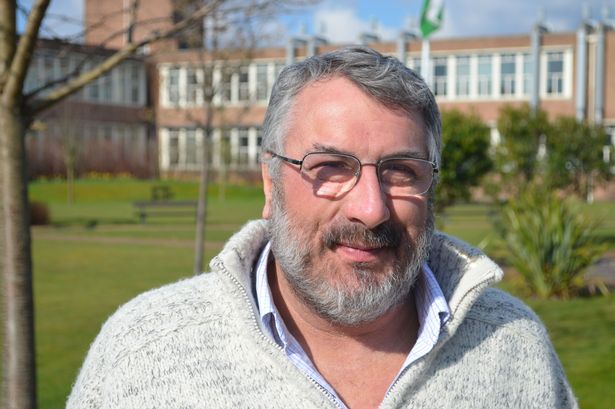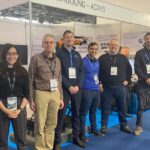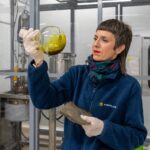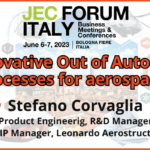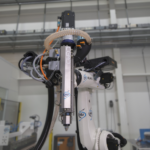Pioneering prof lifts plane parts industry
A North Wales professor is developing new microwave technology that will drastically reduce the time taken to manufacture parts for aircraft.
Richard Day, Professor of Composites Engineering at Wrexham-based Glyndŵr University, has been awarded a prestigious EPSRC High Value Manufacturing Catapult Fellowship to work with the University of Sheffield’s Advanced Manufacturing Research Centre (AMRC) and the National Composites Centre in Bristol (NCC).
They will explore microwave technology designed to cut energy consumption and greenhouse gas emissions when building parts for the aerospace sector.
Professor Day – an expert on the rapid manufacturing of composites, critical for the next generation of aircraft – founded the North West Composites Centre at Manchester University before joining Glyndŵr in 2010, where he helped set up the Advanced Composites Training and Development Centre with Airbus in Broughton, Flintshire.
He will work closely with both the AMRC and NCC to develop microwave ovens as an alternative to conventional technology, using autoclaves – ovens that heat components under pressure.
Researchers have been using microwaves to cure composites for some years, but have yet to develop robust processes that could be used by industry to make geometrically complex parts, as opposed to flat panels.
“I am delighted to be awarded this fellowship which will allow me to be embedded in two prestigious research centres and to take the results of my research from the laboratory into production,” said Professor Day. “I’m very grateful to the companies who supported my application.”
Those backing the Fellowship application included engine developers and defence and aerospace giants.
The four-year research programme will explore and overcome manufacturing problems associated with microwave curing, before going on to make complex components, identical to those used in airplanes.
“We have a number of plans for developing the microwave curing of composites over the next four years, taking it from the laboratory and turning it into a robust industrial process,” said Professor Day. “It takes a long time to cure composites by conventional means and using microwaves significantly increases the speed.”
AMRC Composite Centre Manager Richard Scaife added: “We see this fellowship as a strategic collaboration to further microwave technology in the UK. The collaboration will enable the UK to remain at the forefront of microwave processing of composite materials.”
Photo’s captation: Prof. Richard Day


